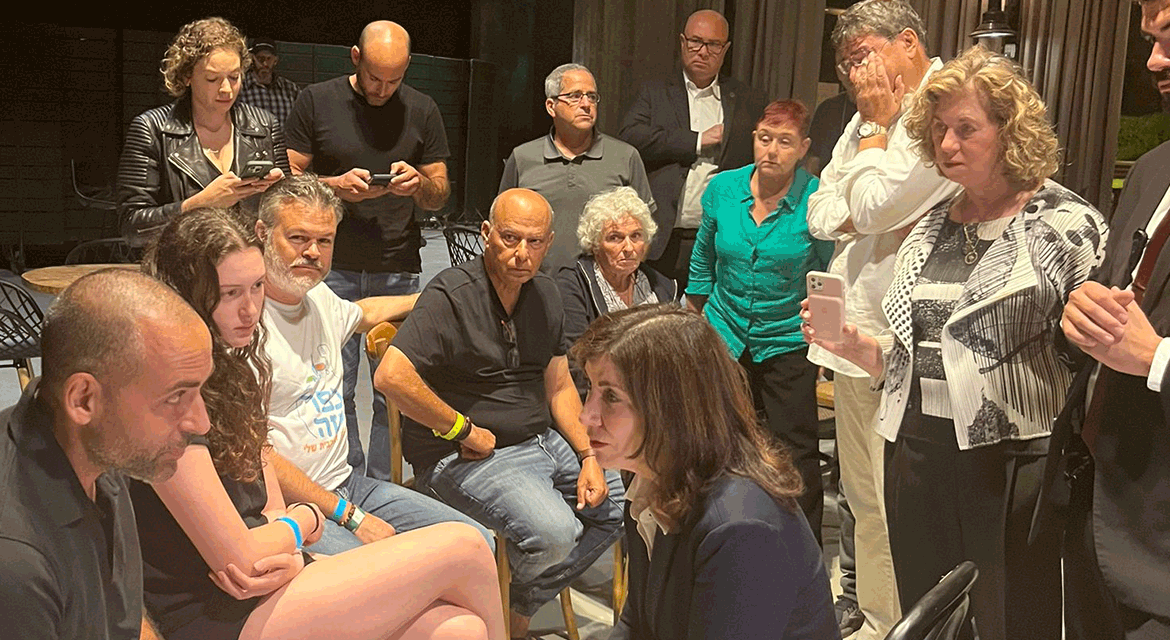A chilling reminder of what these families had endured, at the entrance to the hotel was a chart listing the nine funerals scheduled over the next two days. There had been 44 funerals since they'd arrived.
The governor's 36-hour wartime trip — her first-ever to Israel — was extremely meaningful to all she met. Many of the victims' families want to bring international attention to their stories, and, on a simple human level, there is comfort that comes in connecting through the grief. Adding another emotional layer to all this, the governor learned shortly before landing in Israel that her father had passed away and made the decision to stay — consoling as she was consoled.
In Jerusalem, we met with President Isaac Herzog and his wife, Michal. President Herzog spoke about the critical importance of U.S. support for Israel, expressing enormous appreciation to the governor and many others across the political spectrum who have made their support known.
Michal Herzog reminded us that many people slaughtered in the southern border towns had been engaged in promoting co-existence with their Palestinian neighbors. One of the victims, a 75-year-old woman, ran an organization focused on the cause, devoting her life to it. She’s been taken hostage in Gaza.
Even as I write, I’m aware most of us have been consuming news 24/7 and have heard much of this. So why am I bringing attention to these stories again? Because we know the narrative has shifted. And we have a responsibility to make certain that Israel’s dead, the more than 200 kidnapped, the survivors are not forgotten. It’s a battle being fought on social media, in academia, in all the places where we have, sadly, come to expect Israel to be vilified.
In this highly challenging moment, we’re all obliged to speak out. We can't become numb, and we can't be silent. And when we speak out, we should have sympathy for innocent Palestinian civilians who are being used as human shields. But Hamas bears the responsibility for their suffering. Hamas has no regard for human life. Nor, to be clear, is it motivated by the goal of a two-state solution. Hamas's stated goal is the destruction of Israel and the destruction of the Jewish people.
All of us are enormously concerned in this moment for the people and state of Israel, and the road ahead is likely long and difficult. But, encapsulating what many are feeling right now, former Israeli ambassador to the U.S., Michael Oren, said in a UJA-hosted briefing earlier this morning:
Hamas reminded us that we are one state, one nation, one people, one family. Occasionally a rambunctious family, but one family.
When we face this type of dire threat, we stand together. We are strong.
That’s been our secret of survival for 4,000 years.
Shabbat shalom

